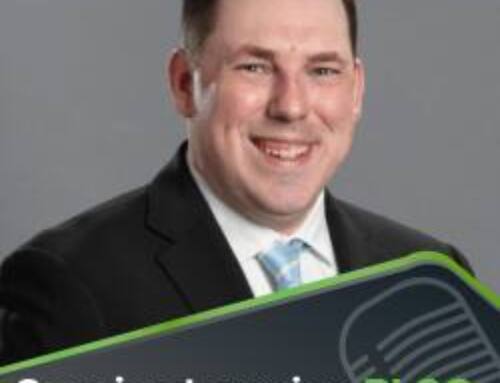As you transition to virtual meeting environments, take stock of that data to re-imagine how you measure your firm – and the client experience
By Chris Hervochon, CPA, CVA | SCACPA Member Since 2017

- Your clients are engaging you in different ways
- You’ve had to change the way you deliver your work product
- The nature and purpose of your conversations with clients and staff has changed
That’s a lot of change. However, with great change comes great opportunity.
COVID-19 has forced our firms to become more virtual, and therefore more cloud-based, if they haven’t already. Both clients and employees will likely want to be more virtual going forward.
There are two ways to look at this: Either it’s doomsday or it opens a whole new world to re-imagine how we operate our firms and deliver our services.
In my opinion, now is the perfect time to reset the deck and move toward a more virtual, automated and data-driven firm.
Let’s discuss three ways we can leverage our new way of operating to create better firms and better client experiences.
A Faster Move to the Cloud
I am a big proponent of the cloud. It allows 24/7-anywhere access to data, enhances collaboration, and allows for the level of data connectivity needed to facilitate automation and efficiency.
If a client has asked you in the past few months “How do I get my tax documents to you?” or “How do I get my QuickBooks Desktop file to you?” you’ve sensed the value of the cloud.
In a presentation at AICPA ENGAGE in 2018, which I had the pleasure to attend and which was memorialized in Accounting Today, AICPA CEO Barry Melancon shared that only 68% of firms were using the cloud. Further, according to an April article by CPA Practice Advisor, 62% of firms that said they were reacting successfully to COVID-19 had at least one cloud system in place. Two years later, one would think 100% of firms were utilizing the cloud, but that seems to not be the case.
Many clients will want to change the way they do business and interface with us, and many in the talent pool won’t want to go back to the physical office. Now is the perfect time to consider further adoption of the cloud. Client portals, general ledgers and dashboarding software are the low-hanging fruit here. The key point is to take a step forward.
Increased Automation
With a forthcoming or in-process move to the cloud, there is no better time than the present to create efficiencies. Zapier is still the gold standard in democratized cloud automation, but others are getting into this space in a meaningful way – and competition is fierce.
Many firms don’t have the coding talent in-house to write their own code, so “point and click” and “drag and drop” tools are a great, cost-effective option. At this point, services like this have become relatively mainsteam among cloud adopters.
Robotic Process Automation, or RPA, has been a buzzword inside and outside of the profession for quite some time. Where services such as Zapier use APIs or “data pipes” to connect data sources and take actions, RPA allows for actions to be automated across applications, websites and anything in between. Until recently, RPA has been expensive to implement – many services charge hundreds or thousands of dollars per bot. However, other players are coming into the game, such as Microsoft with its UI Flows platform, which is both economical and accessible to the non-coder. Plus, it is a nice offshoot of Microsoft’s Power Automate platform, their competitor to Zapier.
What is this and how does it work? Think of UI Flows as an Excel macro recorder for anything on your computer.
The key takeaway is to explore and consider ways you can automate and make your practice more efficient while also delivering an enhanced client experience. This undertaking becomes easier and more robust once you’ve migrated to the cloud.
A Broader Spectrum of Firm Metrics
Whether we like it or not, all or most of our meetings have moved to video conferencing platforms. While such platforms aren’t quite the full human experience, it does present interesting opportunities.
For instance, my firm records all of our meetings and stores them in the cloud. Having a database of client meetings has many advantages: staff can go back and review meetings, it frees up time from note taking to focus on the client during the meeting, and the meetings can be transcribed. There are many transcription services that are economical and quite good. Once a meeting is transcribed, it makes it easier to identify common questions across clients, do sentiment analysis around client communication, and many other things. Having access to this data opens up a whole host of metrics we can track so we can adjust firm offerings, behavior and communication.
With the need to have virtual meetings comes the need to book meetings. There are many quality booking platforms on the market. Online booking platforms provide many advantages, including linking directly to your calendar to eliminate the back and forth in scheduling a meeting. There are great opportunities to collect data here, too. For instance, a connected CRM can tell you how a client found you and what pages they’ve looked at on your website. Additionally, a good intake form can give you all sorts of client data, such as address, phone number, email address and what they need help with.
All this data can then be aggregated for enhanced use.
The key takeaway is to start taking stock of the data your firm will be generating in a more virtual environment. Utilizing this data can provide interesting opportunities to reimagine how we measure our firms as well as the client experience.
Chris Hervochon is the owner of Chris Hervochon, CPA, CVA LLC, a sole-proprietor CPA firm based in Hilton Head that provides outsourced accounting and tax preparation for small businesses and individuals. He serves on SCACPA’s Governmental Affairs Committee, is a 2018 AICPA Leadership Academy graduate and member of the AICPA’s Young Member Leadership Committee since 2018. Chris likes to spend time with his wife and three children, and his hobbies are golf and reading.



